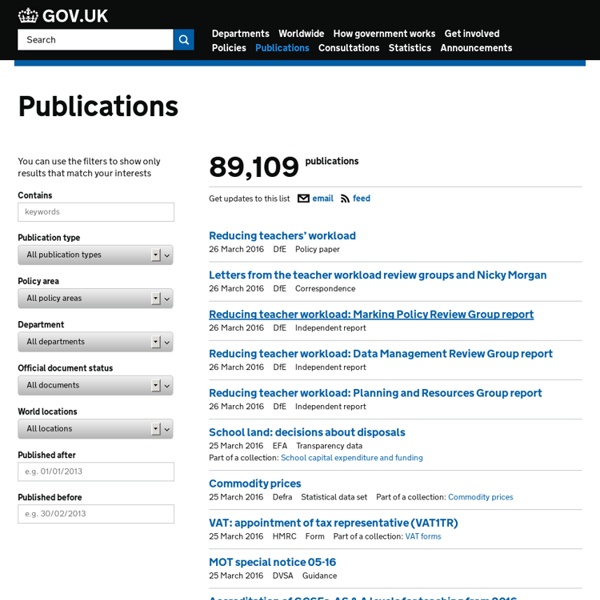



NIBIPEDIA : Together We Learn John Pallister :: Blog :: In pursuit of a light-bulb moment On a recent learning journey, I explored personal learning environments; recognised the need for space to allow learning to happen and the importance of the skills set that would enable learners to function. I had decided that it would be best to allow learner to work and learn in the ‘real world’ without excessive fencing and that for this to work, learners would need to be taught how to function and stay safe . I found myself talking about independent learners working in active, problem solving environments; using appropriate. I had acknowledged the need for the well heralded shift from teaching to leaning. A learner’s (Personal) Learning Environment will need to include some element of ‘teaching’. So what should these session/lessons that will have to be timetabled and ‘led’ by ‘someone’ look like? John Pallister
isthmus: linking the personal and institutional in learning tech Background / Context Project Final Report1 Many contemporary students engage with numerous web-based services and tools that are used both for social purposes and to manage their learning, work and their life. While it is clear that universities may want to harness the power of these to enhance personal and collaborative learning, educational institutions no longer exercise a monopoly over these tools and may be offering redundant or duplicate services, and have gaps in their provision for students who are ‘digital natives’. If this is the case, it is clear that in the near future, universities will have to change practice and utilise ‘bridging’ technologies to encourage this type of student to engage with institutional online provisions whilst also allowing the flexibility for them to use services they already ‘own’. Aims and Objectives The specific objectives are to: Research the best way to integrate user owned technologies with current institutional practice. Project Methodology
Mark Bauerlein and digital imperialism So I have discussed Mark Bauerlein’s contributions to the Chronicle of Higher Education here before. Here’s a new article entitled "Online Literacy is a Lesser Kind." The argument is one that is likely familiar. Bauerlein suggests that reading online does not improve print literacy and likely even detracts from it. He cites multiple studies and projects where the use of computers in the classroom has not resulted in improved test scores in reading, math, and so on. Here is his most interesting point: Educators envision a whole new pedagogy with the tools, but students see only the chance to extend long-established postures toward the screen. In other words, students have a great deal of experience interacting with screens outside learning environments. I suppose we can forgive Bauerlein this because I’m guessing he doesn’t make much use of digital technology, and I’m not in a position to cite research today on these matters, but my observations are somewhat different. 1. 2.
SocialLearn: Bridging the Gap Between Web 2.0 and Higher Educati This is a guest post by Martin Weller for the On the Horizon series on distributed learning environments. Martin is Professor of Educational Technology at the Open University in the UK (OUUK). In 1998 he created the first major elearning course at the OUUK, which attracted over 12,000 students annually. He then went on to be the OUUK’s VLE Project Director for two years, which resulted in the adoption of Moodle. He is the author of two elearning text books, and blogs at Higher education faces a challenge. This may seem like just a technological issue, but it runs deeper than this. And yet it is still the case that most students want the structure, the support and the filter that higher education provides. Let’s take an example – at the Open University in the UK we are developing a social network oriented approach to learning, in a project called SocialLearn. Google+ Comments
Technology | Luminaries look to the future web Exactly 15 years ago the directors at the lab where the web was first developed signed a document which said the technology could be used by anyone free of charge. That decision was instrumental in making the web truly world wide. BBC News talks to some of the leading figures in the web community about their hopes for the future of the web. Let me first say that I am extremely optimistic. The web has been a tremendous tool for people to do a lot of good even though you can find bad stuff out there. The experience of the development of the web by so many people collaborating across the globe has just been a fantastic experience. The experience of international collaboration continues. To look back on the web after 15 years is in fact wrong. The future is always in the past and for the web particularly. You couldn't even find all the data in the world immediately at your fingertips. Sir Tim Berners-Lee developed the web while at the physics lab Cern. Everything is going mobile. Dr.